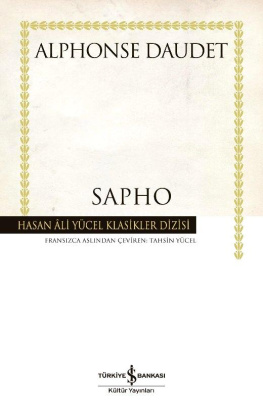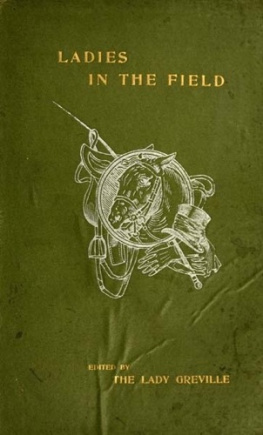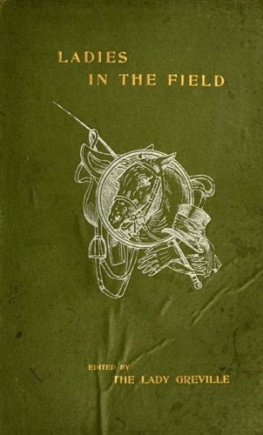THE EARLY SOCIOLOGY OF CULTURE
THE EARLY SOCIOLOGY OF CULTURE
VOLUME I
Old World Traits Transplanted
Robert E. Park and Herbert A. Miller
VOLUME II
The Taxi-Dance Hall: A Sociological Study on Commercialized Recreation and City Life
Paul G. Cressy
VOLUME III
The Mind and Society
Part One: Non-Logical Conflict
Vilfredo Pareto
VOLUME IV
The Mind and Society
Part Two: Analysis of Sentiment
Vilfredo Pareto
VOLUME V
The Mind and Society
Part Three: Sentiment in Thinking
Vilfredo Pareto
VOLUME VI
The Mind and Society
Part Four: The General Form of Society
Vilfredo Pareto
VOLUME VII
The Elements of Folk Psychology: Outlines of a Psychological History of the Development of Mankind
Wilhelm Wundt
VOLUME VIII
Culture and Progress
Wilson D. Wallis
First published 1916 by Routledge
This edition published 2003 by Routledge
2 Park Square, Milton Park, Abingdon, Oxon, OX14 4RN
Simultaneously published in the USA and Canada
by Routledge
270 Madison Ave, New York NY 10016
Routledge is an imprint of the Taylor & Francis Group
Transferred to Digital Printing 2007
Editorial Matter and Selection 2003 Kenneth Thompson; individual owners retain copyright in their own material.
Typeset in Times New Roman by Keystroke, Jacaranda Lodge, Wolverhampton All rights reserved. No part of this book may be reprinted or reproduced or utilised in any form or by any electronic, mechanical, or other means, now known or hereafter invented, including photocopying and recording, or in any information storage or retrieval system, without permission in writing from the publishers.
British Library Cataloguing in Publication Data
A catalogue record for this book is available from the British Library
Library of Congress Cataloging in Publication Data
A catalog record for this book has been requested.
ISBN 0415279739 (Set)
ISBN 0415279801 (Volume VII)
Publishers Note
The publisher has gone to great lengths to ensure the quality of this reprint but points out that some imperfections in the original book may be apparent.
THE MAKING OF SOCIOLOGY
Founding editor: Bryan S. Turner, University of Cambridge
Series editor: Kenneth Thompson, Open University
THE EARLY SOCIOLOGY OF CLASS
Edited with a new introduction by Bryan S. Turner
8 volume set
THE EARLY SOCIOLOGY OF RELIGION
Edited with a new introduction by Bryan S. Turner
9 volume set
SOCIAL THEORIES OF THE CITY
Edited with a new introduction by Bryan S. Turner
THE EARLY SOCIOLOGY OF THE FAMILY
Edited with a new introduction by Bryan S. Turner
10 volume set
ORIENTALISM: EARLY SOURCES
Edited with a new introduction by Bryan S. Turner
12 volume set
THE EARLY SOCIOLOGY OF HEALTH AND ILLNESS
Edited with a new introduction by Kevin White
6 volume set
THE EARLY SOCIOLOGY OF CULTURE
Edited with a new introduction by Kenneth Thompson
8 volume set
THE EARLY SOCIOLOGY OF MANAGEMENT AND ORGANISATIONS
Edited with a new introduction by Kenneth Thompson
8 volume set
ELEMENTS OF FOLK PSYCHOLOGY
OUTLINES OF A PSYCHOLOGICAL
HISTORY OF THE DEVELOPMENT
OF MANKIND
BY
WILHELM WUNDT
AUTHORIZED TRANSLATION
BY
EDWARD LEROY SCHAUB, Ph.D.
Professor of Philosophy in Northwestern University
TRANSLATORS PREFACE
THE keen interest which the present age is manifesting in problems connected with the interpretation of human experience is no less a result than it is a precondition of the fruitful labours of individual scholars. Prominent among these is the distinguished author of the volume which is herewith rendered accessible to English readers. The impetus which Professor Wundt has given to the philosophical and psychological studies of recent years is a matter of common knowledge. Many of those who are contributing richly to these fields of thought received their stimulus from instruction directly enjoyed in the laboratory and the classrooms of Leipzig. But even more than to Wundt, the teacher, is the world indebted to Wundt, the investigator and the writer. The number and comprehensiveness of this authors publications, as well as their range of subjects, are little short of amazing. To gauge the extent of their influence would require an examination of a large part of current philosophical and psychological literature. No small measure of this influence, however, must be credited to those whose labours have made possible the appearance of Wundts writings in other tongues. Of the English translations, we owe the first to Professors Creighton and Titchener. Succeeding their translation of the Lectures on Human and Animal Psychology came the publication, in English, of the first volume of the Principles of Physiological Psychology, of the two briefer treatises, Outlines of Psychology and Introduction to Psychology, and, in the meantime, of the valuable work on Ethics.
Though Professor Wundt first won recognition through his investigations in physiology, it was his later and more valuable contributions to physiological psychology, as well as to logic, ethics, epistemology, and metaphysics, that gained for him his place of eminence in the world of scholarship. One may hazard the prophecy, however, that the final verdict of history will ascribe to his latest studies, those in folk psychology, a significance not inferior to that which is now generally conceded to the writings of his earlier years. The Vlkerpsychologie is a truly, monumental work. The analysis and interpretation of language, art, mythology, and religion, and the criticisms of rival theories and points of view, which occupy, its five large volumes of over three thousand pages, are at once so judicial and so suggestive that they may not be neglected by any serious student of the social mind. The publication of the Vlker psychologie made necessary a number of defensive and supplementary articles. Two of these, in a somewhat revised form, together with an early article on The Aim and Methods of Folk Psychology, and an additional essay on Pragmatic and Genetic Psychology of Religion, were published in 1911 under the title, Probleme der Vlkerpsychologie Finally, in 1912, there appeared the book which we are now presenting in translation, the Elemente and the Vlkerpsychologie. As regards the difference in method and character between the Elemente and the Vlkerpsychologie, nothing need be added to what may be gleaned from the authors Preface and Introduction to this, his latest, work. Here, too, Professor Wundt indicates his conception of the nature and the problem of folk psychology, a fuller discussion of which may be found both in the Vlkerpsychologie and in the first essay of the Probleme.
He who attempts to sketch the Outlines of a Psychological History of the Development of Mankind necessarily incurs a heavy indebtedness, as regards his material, to various more specialized sciences. The success with which the data have been sifted in the present instance and the extent to which the author has repaid the special sciences in terms of serviceable principles of interpretation, must, to a certain extent, be left to the determination of those who are engaged in these specific fields. Human beliefs and institutions, however, as well as all products of art and modes of labour, of food-getting, of marriage, of warfare, etc.in short, all elements of human cultureeven though subject to natural conditions of various sorts, are essentially mental processes or the expression of psychical activities. Hence no theory relating to these phenomena is acceptable, or even respectable, that does violence to wellestablished psychological principles. The unpsychological character of many of the hypotheses that still abound in ethnological, sociological, and historical literature, in itself renders necessary such discussions as those comprised within the present volume. One of the very valuable, even though not novel, features of the Elements, therefore, is its clear exposure of the untenability of rationalistic and other similarly erroneous types of explanation.













